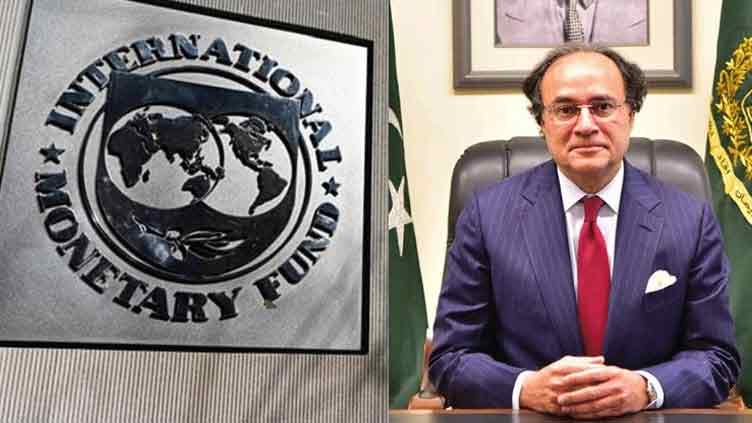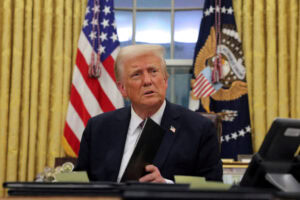ISLAMABAD: The International Monetary Fund (IMF) and the Government of Pakistan have begun virtual discussions on the federal budget for fiscal year 2025–26, with negotiations scheduled to continue until May 16.
The IMF’s mission was originally expected to arrive in Islamabad on Tuesday but postponed its visit due to regional air travel disruptions following heightened security tensions triggered by Indian aggression, according to government sources.
Despite the delay, officials emphasized that the adjustment in the IMF team’s travel schedule would not impact the overall timeline or substance of the ongoing Extended Fund Facility (EFF) program.
The IMF delegation is now expected to reach Islamabad by the weekend, provided the security situation permits, and will remain in the capital until May 23 for the in-person segment of the talks.
In the midst of these developments, the IMF has also appointed a new mission chief for Pakistan. Dr. Iva Petrova, who previously served as Mission Chief to Armenia and held assignments in Israel, Iceland, and Latvia, has replaced Nathan Porter, known for his strict policy stance and minimal public engagement.
Both Petrova and Porter are expected to take part in the discussions, though official confirmation on their roles in the two phases of the talks is yet to be provided.
The Finance Ministry, meanwhile, is preparing to present the federal budget on June 2, ahead of the Eidul Azha holidays.
This will mark Finance Minister Muhammad Aurangzeb’s second budget presentation.
Fiscal Blueprint
The fiscal blueprint is expected to reflect the IMF’s recommendations, including the demand for a primary budget surplus equivalent to 1.6% of GDP, which would require the government to generate roughly Rs2 trillion above non-interest expenditures.
In line with the IMF’s fiscal framework, the Federal Board of Revenue (FBR) has been tasked with achieving a tax-to-GDP ratio of 11%, translating to a tax collection target of Rs14.3 trillion for the upcoming year.
The Fund is also expected to scrutinize the government’s plans for achieving this ambitious target through credible reforms and enforcement mechanisms.
While the overall size of the federal budget is still being finalized—mainly due to adjustments in defence allocations—initial estimates suggest it will be below Rs18 trillion.
The budget deficit, after factoring in provincial cash surpluses, is projected at 5.1% of GDP, or Rs6.7 trillion.
During the first day of the talks, Pakistani authorities are set to brief the IMF on fiscal developments from July 2024 to March 2025, including details of supplementary grants.
The Fund will also assess whether Pakistan has made progress on non-tax revenue targets, especially from petroleum levies and central bank profits, and evaluate the impact of the downsizing of government departments.
Read More: IMF Approves $2B for Pakistan Next Month
Pakistan has so far met key fiscal performance benchmarks under the IMF program. Against a target of Rs2.7 trillion, the federal government posted a primary surplus of Rs3.5 trillion—2.8% of GDP—largely due to the early booking of Rs2.5 trillion in central bank profits during the first quarter.
Moreover, the four provinces combined to generate a cash surplus of Rs1.028 trillion, exceeding the IMF’s requirement by Rs25 billion. Provincial tax revenue collection reached Rs685 billion, also surpassing the target by Rs79 billion.
However, performance on the tax collection front remains a challenge. As of April 30, the FBR has provisionally collected Rs9.3 trillion, reflecting a year-on-year growth of 27%, or Rs1.95 trillion.
Despite the increase, this collection falls short of the revised annual target by Rs830 billion. April alone added Rs135 billion to the shortfall, breaching an earlier commitment to the IMF that the gap would not exceed Rs640 billion.
Additionally, the IMF is expected to seek updates on tax enforcement measures, including the track-and-trace system, the retailers’ documentation scheme, and efforts in compliance risk management—all of which have seen limited progress.
The FBR’s reliance on ad-hoc and supplementary taxes rather than structural reforms has drawn concern from the Fund.
Also Read: Govt Insists IMF Program on Track As India Asking IMF to Review Pak Loan
In the coming days, the IMF will continue evaluating Pakistan’s fiscal strategy, revenue outlook, and policy commitments to determine the path forward for the next leg of the IMF program and the release of further financial assistance.









